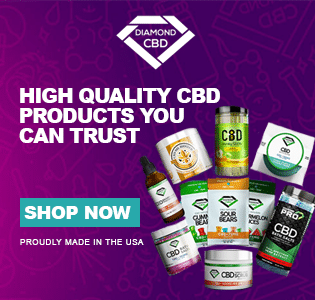Are you aware of the intricate web of regulations surrounding the licensing of CBD gummies? Navigating the legal landscape of CBD products can be complex, especially when it comes to gummies. From federal requirements to state-level regulations, there's a lot to consider. Understanding the nuances of CBD gummy licensing is crucial for anyone involved in the production, distribution, or sale of these products. But how do you ensure compliance and avoid potential penalties? It's essential to grasp the specifics of licensing regulations to operate within the bounds of the law and ensure the quality and safety of your products.
Key Takeaways
- Obtaining federal and state licenses is mandatory for legally manufacturing and distributing CBD gummies.
- Compliance with licensing regulations, quality standards, and labeling requirements is essential for operating a CBD gummy business.
- Clear and accurate product labeling and packaging, including ingredient lists and dosage recommendations, are necessary to inform consumers and ensure transparency.
- Testing for potency, purity, and contaminants is crucial to guarantee the quality and safety of CBD gummies.
Federal CBD Gummy Licensing Requirements
To legally produce and sell CBD gummies in the United States, you must obtain a federal license from the appropriate regulatory agency. The CBD gummy market analysis reveals a growing demand for these products, prompting many entrepreneurs to consider entering the industry. However, before venturing into this market, it's crucial to understand the federal licensing requirements. The international trade restrictions also play a significant role in this process. The U.S. regulatory agency responsible for issuing federal licenses for CBD products is stringent in its evaluation of applicants. They require a comprehensive understanding of CBD production, safety standards, and quality control measures. Meeting these requirements is essential for obtaining the necessary federal license. Additionally, it's important to stay informed about international trade restrictions and regulations, as they can impact the import and export of CBD gummies. Being knowledgeable about these aspects will not only ensure compliance but also help in navigating the complexities of the CBD gummy market. Therefore, thoroughly researching and understanding federal licensing requirements and international trade restrictions is imperative for anyone considering entering the CBD gummy market.
State-Level CBD Gummy Regulations
Now, let's take a closer look at the specific licensing requirements and product labeling laws that each state has put in place for CBD gummies. Understanding these state-level regulations is crucial for ensuring compliance and avoiding any potential legal issues. Each state may have its own unique set of rules and restrictions, so it's essential to thoroughly research and understand the specific requirements in the states where you plan to distribute your CBD gummies.
Licensing Requirements
State-level CBD gummy regulations require businesses to obtain specific licenses to legally manufacture and distribute these products. Before delving into the licensing requirements, it's crucial to conduct a thorough market analysis to understand the demand for CBD gummies in your target state. This includes identifying current competitors, consumer trends, and potential market saturation. Understanding consumer trends is vital for ensuring that your CBD gummy products meet the preferences and needs of your target market. Once you have a comprehensive understanding of the market and consumer behavior, you can then proceed to fulfill the licensing requirements set forth by the state. These requirements may include obtaining a manufacturing license, a distributor license, and adhering to specific labeling and packaging regulations. It's imperative to meticulously follow these requirements to ensure compliance and the legal operation of your CBD gummy business.
Product Labeling Laws
Ensure compliance with state-level CBD gummy regulations by meticulously adhering to product labeling laws, which play a crucial role in informing consumers about the contents and usage of the product. Ingredient transparency is a fundamental aspect of product labeling laws. It's essential to provide a comprehensive list of all ingredients used in the CBD gummies, ensuring that consumers are fully aware of what they are consuming. Consumer education is another key element, and the labeling should include clear and accurate information to help consumers make informed decisions. Additionally, health claims and dosage recommendations must adhere to state regulations. Any health claims must be substantiated, and dosage recommendations should align with state-specific guidelines. By carefully following product labeling laws, you can demonstrate commitment to transparency, consumer safety, and regulatory compliance.
Quality Control and Testing Standards
Quality control and testing standards play a crucial role in ensuring the safety and efficacy of CBD gummies for consumers. Testing protocols are essential to verify the quality and consistency of CBD gummies. These protocols typically include tests for potency, purity, and the presence of any contaminants. Potency standards ensure that the CBD gummies contain the advertised amount of CBD and other cannabinoids, allowing consumers to trust the product's effectiveness. Furthermore, testing for contaminants such as pesticides, heavy metals, and residual solvents is vital to guarantee the safety of CBD gummies for consumption.
Regulatory authorities often require CBD gummy manufacturers to adhere to specific testing protocols and potency standards to ensure product quality and consumer safety. These standards help maintain transparency and build trust between consumers and CBD gummy manufacturers. Additionally, independent third-party testing is often utilized to provide unbiased verification of the product's quality and safety. As a consumer, it is important to look for CBD gummies that have undergone rigorous testing and meet potency standards to ensure you are getting a safe and effective product.
Labeling and Packaging Guidelines
After ensuring the potency and safety of CBD gummies through rigorous testing, the next crucial step is to address the labeling and packaging guidelines, which are essential for providing consumers with clear and accurate information about the product. Packaging design plays a critical role in attracting consumers and communicating the essence of the product. It should align with the brand's identity while being practical and informative. The packaging must also adhere to specific regulations regarding the display of essential information, such as the CBD content, serving size, and any potential allergens.
Ingredient transparency is paramount in the labeling of CBD gummies. The label should clearly list all the ingredients used in the product, including any additives or sweeteners. Additionally, it is crucial to include information about the source of the CBD, whether it is from hemp or cannabis, and the extraction method used. This transparency helps consumers make informed decisions about the products they are purchasing.
Furthermore, accurate and clear labeling is necessary to ensure that consumers understand the CBD content and dosage recommendations. The packaging should also include any warnings or precautions, as well as storage instructions to maintain the product's quality. Following these labeling and packaging guidelines is not only a regulatory requirement but also a way to build trust and confidence with consumers.
Advertising and Marketing Restrictions
To effectively navigate the complex landscape of CBD gummy marketing and advertising, it is imperative to understand the stringent regulations and limitations imposed on these activities. When it comes to promoting CBD gummies, there are several restrictions and guidelines in place to ensure compliance with legal requirements and consumer protection. Here are some key aspects to consider:
- Restrictions on Health Claims: CBD gummy advertising is subject to strict regulations regarding health claims and benefits. Marketing materials must refrain from making unsupported or exaggerated claims about the health benefits of CBD gummies, as this could mislead consumers.
- Age Restrictions and Target Audience: There are limitations on the target audience for CBD gummy promotions. Marketing strategies must adhere to age restrictions, ensuring that promotional efforts are not geared towards minors.
- Compliance with Advertising Standards: CBD gummy promotions must comply with general advertising standards, including truthfulness, substantiation of claims, and transparency. Marketing materials should provide accurate information about the product without misleading or deceiving consumers.
Understanding these advertising and marketing restrictions is crucial for CBD gummy businesses to develop compliant and effective marketing strategies while navigating the evolving regulatory landscape.
Distribution and Sales Licensing
Navigating the stringent regulations and limitations of CBD gummy marketing and advertising naturally leads to a pivotal consideration: the process and requirements for obtaining distribution and sales licensing. When it comes to CBD gummy distribution and sales, understanding the manufacturing standards and distribution channels is crucial. The table below provides an overview of the key factors to consider when applying for distribution and sales licensing.
| Licensing Considerations | Description | Importance |
|---|---|---|
| Manufacturing Standards | Compliance with Good Manufacturing Practices (GMP) and other industry-specific regulations is essential to ensure the quality and safety of CBD gummies. | Ensures product quality and safety for consumers. |
| Distribution Channels | Identifying and establishing efficient and legally compliant distribution channels is vital for reaching the target market and meeting consumer demand. | Determines the accessibility of CBD gummies to consumers and impacts sales potential. |
Understanding the intricacies of manufacturing standards and distribution channels can significantly impact the success of your CBD gummy business. By adhering to these licensing requirements, you can establish a strong foundation for distributing and selling high-quality CBD gummies while complying with the law.
Import and Export Regulations
When importing and exporting CBD gummies, it's important to be aware of the specific import restrictions and export requirements that apply to your product. Understanding the trade documentation needed for each transaction is crucial for compliance and smooth operations. Familiarizing yourself with these regulations will help you navigate the complexities of international trade in the CBD industry.
Import Restrictions
CBD gummy import restrictions are governed by specific regulations and requirements imposed by the importing country's authorities. When importing CBD gummies, it's crucial to be aware of the following:
- Customs Clearance: Every country has its own set of rules and procedures for customs clearance. It's essential to adhere to these guidelines to ensure smooth importation of CBD gummies.
- Import Taxes: Importing CBD gummies may be subject to various taxes and duties imposed by the importing country. Understanding and complying with these tax regulations is essential to avoid any legal issues.
- Product Restrictions: Certain countries may have specific restrictions on the importation of CBD products, including gummies. It's important to thoroughly research and understand these restrictions before attempting to import CBD gummies into a particular country.
Being well-informed about these import restrictions and adhering to them is crucial for successfully importing CBD gummies into a new market.
Export Requirements
Understanding the export requirements for CBD gummies is essential for navigating the global market and ensuring compliance with international trade regulations. When exporting CBD gummies, it is crucial to be aware of the specific export restrictions imposed by different countries. Some countries may have strict regulations on the export of CBD products, requiring thorough documentation and compliance with their respective laws. Additionally, understanding international trade agreements and treaties is essential for ensuring smooth export operations. Familiarizing yourself with the export requirements for CBD gummies in the target market will help avoid potential legal issues and ensure a seamless export process. It's important to stay updated on any changes in export regulations and to work closely with legal and trade experts to maintain compliance with international trade laws.
Trade Documentation
Navigating the complexities of international trade regulations for CBD gummy exports requires meticulous attention to trade documentation and import and export regulations. When dealing with trade documentation for CBD gummy exports, it's important to understand the specific requirements of the importing country. Here's what you need to consider:
- Trade Agreements: Familiarize yourself with any trade agreements between your country and the importing country. These agreements may impact the documentation required and the tariffs imposed on CBD gummy exports.
- Import Tariffs: Research the import tariffs imposed on CBD gummy products in the target market. Understanding these tariffs will help you accurately price your products for export and ensure compliance with the importing country's regulations.
- Customs Documentation: Ensure that you have all the necessary customs documentation in order, including invoices, certificates of origin, and any other required paperwork specific to CBD gummy exports.
Careful attention to trade documentation and import and export regulations is essential for a successful CBD gummy export business.
Compliance and Reporting Obligations
To ensure compliance with CBD gummy licensing regulations, it is essential for license holders to maintain accurate records and promptly report any relevant information to the appropriate regulatory authorities. This involves meticulous documentation of ingredient sourcing to ensure that all components used in the production of CBD gummies comply with regulatory standards. Additionally, shelf life testing must be conducted and documented to guarantee the safety and quality of the products.
When it comes to compliance and reporting obligations, it is crucial to keep detailed records of ingredient suppliers, including their contact information, certificates of analysis, and any relevant documentation to validate the quality and safety of the sourced ingredients. This information should be readily available for inspection by regulatory authorities upon request. Moreover, shelf life testing records, including testing protocols, results, and any corrective actions taken, should be maintained to demonstrate adherence to regulatory requirements.
Prompt and accurate reporting of any changes in ingredient sourcing or shelf life testing results is paramount. Any deviations from the established standards should be reported to the regulatory authorities in a timely manner, along with a detailed plan for corrective actions to address the issues. By fulfilling these compliance and reporting obligations, CBD gummy license holders can ensure that their products meet regulatory requirements and maintain consumer safety.
Enforcement and Penalties
When it comes to enforcing compliance with CBD gummy licensing regulations, regulatory authorities closely monitor adherence to reporting obligations and ingredient sourcing standards to ensure consumer safety and product quality. Enforcement procedures are in place to uphold these standards, and penalty guidelines are established to deter non-compliance. Here's what you need to know about enforcement and penalties:
- Inspections and Audits: Regulatory authorities conduct regular inspections and audits of CBD gummy manufacturers to verify compliance with licensing regulations. This includes reviewing documentation related to ingredient sourcing, production processes, and product testing.
- Warning Notices and Fines: In cases of non-compliance, regulatory authorities may issue warning notices outlining necessary corrective actions. Failure to address these issues may result in fines or penalties, based on the severity of the violation and its potential impact on consumer safety.
- License Suspension or Revocation: Persistent or serious violations of CBD gummy licensing regulations can lead to the suspension or revocation of the manufacturer's license, preventing them from legally producing and distributing CBD gummies.
Enforcement procedures and penalty guidelines play a crucial role in maintaining the integrity of the CBD gummy industry and safeguarding consumer well-being.
Frequently Asked Questions
Can CBD Gummies Be Sold in All 50 States Without Any Restrictions?
You might think CBD gummies can be sold freely, but actually, potency limits vary by state. Age restrictions also apply. Always check local laws before selling in all 50 states without restrictions.
Are There Any Specific Regulations Regarding the Flavors and Ingredients Used in CBD Gummies?
When it comes to flavor regulations and ingredient restrictions for CBD gummies, it's important to be aware of any specific requirements set forth by regulatory bodies. Ensuring compliance with these guidelines is crucial for legal distribution.
What Are the Requirements for Obtaining a License to Distribute and Sell CBD Gummies at a National Level?
To distribute and sell CBD gummies at a national level, you'll need to meet licensing requirements set by federal regulations and adhere to state enforcement standards. It's crucial to navigate the complex legal landscape for successful national distribution.
Are There Any Limitations on the Types of Advertising and Marketing Strategies That Can Be Used for CBD Gummies?
You can unleash your creativity with eye-catching packaging for CBD gummies. Online marketing strategies are the way to go, but remember to comply with regulations. Get ready to stand out in a crowded market!
How Are Enforcement and Penalties for Non-Compliance With CBD Gummy Regulations Typically Handled at the Federal and State Levels?
Enforcement procedures for non-compliance with CBD gummy regulations differ at state and federal levels. States may impose fines or suspension, while the federal level may lead to seizure or injunction. It's crucial to understand and adhere to both sets of regulations.





